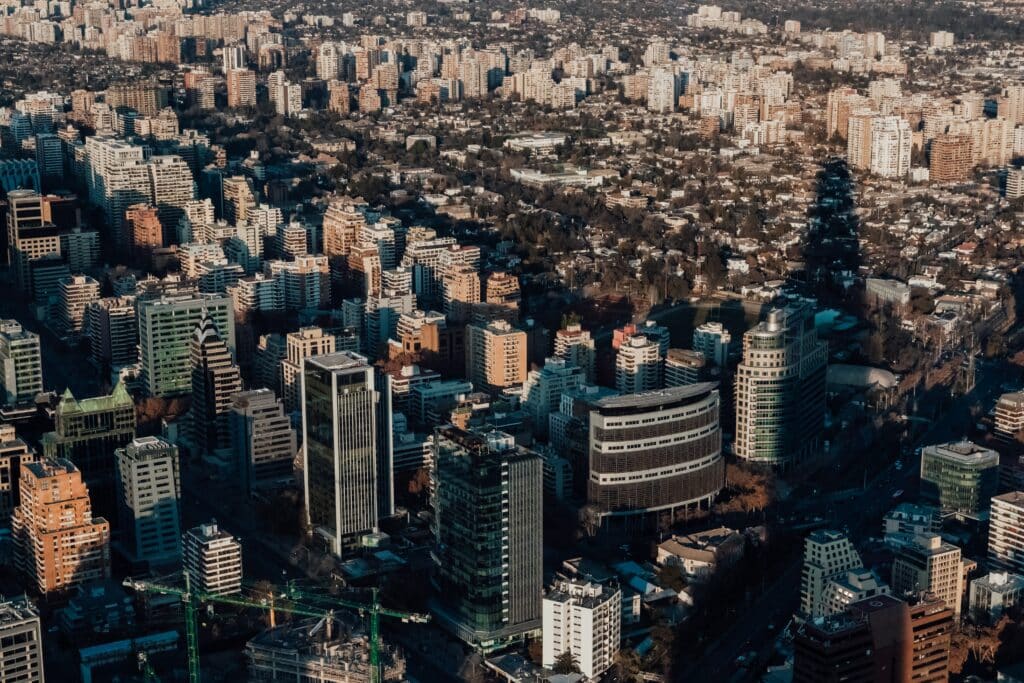From the snow-capped peaks of the Andes to the Atacama Desert, the world’s longest country is a land of adventure, offering unrivaled geographical extravagance, cultural diversity and natural beauty — all at once. And while expatriates from all over the world are sure to be seduced by these assets, they can also count on one of the region’s most dynamic economies, an efficient healthcare system, political stability and a superb quality of life.
Foyer Global Health offers you some key tips to help you write a new chapter in your life in Chile.
Relocating to Chile: What are the advantages?
- Political stability: Chile is one of the most politically stable countries in South America.
- Economic dynamism: Have you ever heard of ‘Chilicon Valley’? CORFO, the government’s start-up accelerator, attracts young start-ups from all over the world, helping to fuel a dynamic economy .
- Safety: Chile is the safest country in Latin America.
- Beautiful scenery: if there’s one country where relocation is a pretext for tourism, it’s Chile! You’ll be able to explore extremely diverse landscapes that promise extraordinary cultural and outdoor experiences.
- A high quality of life, Chile offers one of the best healthcare systems in Latin America, a wide range of outdoor opportunities and a good education system.
- Rich historical and cultural heritage
- Delicious wine! Chilean grapes have gained an international reputation.

Which visa do you need for Chile?
Depending on your profile and reason for relocation, Chile offers a dozen different types of visas, including a ‘temporary investor visa’, a ‘visa subject to work contract’, and a ‘work permit as a tourist’. If your plan is to work in ‘the land of poets’ for more than three months, you need to apply for a contract work visa (lasting two years) or a temporary resident visa (valid one year, renewable once). To inquire as to which type of visa you will require and what documents you need to present, please contact the Chilean embassy or consulate in your home country before you leave.
Provided you have a work visa, after two years in the country, you can apply for permanent residence (permanencia definitiva). After five years, you can apply for citizenship.
Accommodation in Chile
Chile offers a wide range of accommodation options, including apartments, condos, houses, and cabins, depending where you settle and whether you plan to live in an urban or rural area. In the capital Santiago and in tourist areas, including the South, rents tend to be much higher than elsewhere in the country. For example, for a two-bedroom apartment in the popular district of Vitacura (one of Santiago’s municipalities), rents can rise to 2,000,000 Chilean pesos (€2,117). In the hinterland, on the other hand, the average rent for a small house is around 300,000 Chilean pesos (€320).
In Chile, most rentals are furnished or at least semi-furnished; rents generally do not include charges such as water and electricity; and there are two types of rental contracts (open-ended, which can be terminated at any time with one month’s notice; fixed-term, March to December, which is very common in tourist areas.
Useful links:
https://www.portalinmobiliario.com/
https://www.longtermlettings.com/rent/monthly/chile/
Cost of living in Chile

Chile is one of the most expensive countries in the region. Compared to other Latin American countries such as Bolivia or Peru, the cost of living in Chile is quite high, and sometimes comparable to the cost of living in a provincial town in Western Europe. In fact, the cost of living varies considerably depending on the region and city. In Santiago, the cost of living is around 30% higher than in other Chilean cities, especially when it comes to housing prices. When it comes to food, you can find cheap, fresh local produce, but imported items are expensive.
Working in Chile
Most foreign employees in Chile work in Santiago for international companies operating mostly in IT, electronics, textile and the food industries. It is highly recommended to look for a job before moving to Chile. A good command of Spanish is an advantage if you want to work in Chile, as fluent English is often not enough. According to Chile’s labour legislation, employees must work 45 hours per week; however, work schedules are quite flexible, allowing Chileans to take long breaks.
If you’re planning to set up your own business, that’s entirely possible! In fact, Santiago, the ‘Chilicon Valley’, is a place of choice for entrepreneurs and start-ups. The Chilean government has set up the ‘Start-Up Chile’ programme to support the development of new businesses. For more information on the programme, click here, and to learn about the procedure to set up your business, click here.
Traditional values, such as helping others, are integral to Chilean society. So, this should help you finding support for your project(s)!
Healthcare
Chile has one of the best health systems in South America. In both the public and private sectors, medical infrastructure and services are generally of a high standard. Pregnancy care, in particular, is excellent. Most expatriates opt for international health insurance, however, which provides effective and flexible coverage in the best private health facilities.
Education in Chile
In Chile, the school year runs from March to December, with a break in July for students between the ages of 6 and 18. New students must apply for enrolment between July and September for the next year. The Chilean education system includes public and subsidised private institutions of good quality — from nursery to higher education. Classes are mainly taught in Spanish, although foreign languages as well as Mapuche are sometimes taught from primary school onwards. There are several international schools in the Chilean capital, including the American school Nido de Aguilas, where many expatriates send their children for generally quite high fees (between €4,600 and €18,000 a year).
Top experiences in Chile
- Ski in Valle Nevado, one of the top three ski resorts in the Andes
- Experience dining out in Santiago
- Discover wine tourism and exceptional wines in the Colchaga Valley or Casablanca Valleys
- Hike in the Lakes region
- Trek the Torres del Paine National Park
- Seek out the mysterious moais of Easter Island and chase the sun on pristine Anakena beach
- Surf the waves of the Pacific in Arica, one of Chile’s surfing capitals
- Meet the penguins off Punta Arenas
